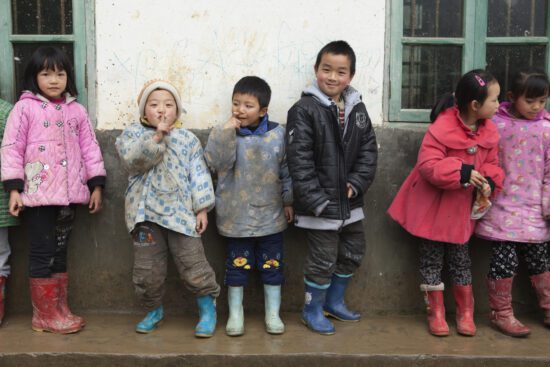The first question which the priest and the Levite asked was: “If I stop to help this man, what will happen to me?” But the good Samaritan reversed the question: “If I do not stop to help this man, what will happen to him?” – Martin Luther King Jr
Foster care is a topic that doesn’t seem to receive enough attention. While plenty of churches discuss and promote adoption, there’s a hole in our conversation about caring for the vulnerable and marginalized, and that hole is children in foster care.
Not every Christian is called to adopt a foster care child, but every Christian is called to be concerned about the vulnerable (Micah 6:8), especially orphans (James 1:27). Who is more vulnerable than children without a stable home environment? Foster care is designed, by the state, as a temporary solution for family in crisis, but often the good intentions of foster care don’t equal good outcomes. At times, foster care harms those it’s trying to protect.
Here are some sad statistics about children in foster care:
- There are currently over 415,000 children in the United States Foster Care System
- A child enters into foster care every two minutes in the U.S.
- Forty-five percent of those aging out of foster care become homeless within a year
- Almost 80 percent of people in prison in the U.S. are former foster care youth
- One fourth of children (100,000) in the foster care system are waiting to be adopted
- It costs taxpayers $300,000 per foster youth that has failed out of the system
- Only three to five percent of foster youth ever graduate from college
Children that enter into foster care are at a higher risk for homelessness, drug addiction, alcoholism, unplanned pregnancies, prostitution, joining gangs, being sex trafficked or death.
Of course, it is easy to let these numbers numb the mind. Statistics alone can’t make us care; only the Spirit of God can prick the heart with compassion. William Wilberforce, the great slavery abolitionist, was awakened to the plight of his fellow brothers and sisters in slavery and spent the rest of his life ensuring that future generations wouldn’t be enslaved. Allow his words, and Christ’s words, to sink in:
“You may choose to look the other way, but you can never say again that you did not know.” – William Wilberforce
“Truly I tell you, whatever you did for one of the least of these my brothers, you did it to me” (Matt. 25:40).
I’m grateful for the heroic people who work in foster care and for the families who sacrifice to adopt children. Foster care is a sad necessity in a fallen world—a world where families are broken and children are left vulnerable. This is why the church needs to both care for children in peril and influence policies in society that promote healthy families.
Families are one of the most fundamental and important parts of a flourishing society. Multiple studies have shown that children who grow up in a stable home, with a mom and a dad, are set up for lifelong success. As Christians, we recognize that science is testifying to how God designed and set up the structure of the world—one man, one woman, in a relationship forever, shepherding the hearts and minds of their children. Marriage is not only a worthy social good, it is a vivid picture of the mystery of Christ and the church. When we advocate for marriage, we are holding out hope to a decaying world.
Though there are many, dangerous, at-risk situations that require the state to move in and separate children from harmful homes, at times, foster care can be even more traumatic for a child than the situation they were in. Many mental health professionals agree that it’s less traumatizing for the children and more cost-effective for the families to get appropriate supportive services before a child is removed. Services would include parenting classes, substance abuse programs, financial aid, counseling, etc.
But this requires a church that is willing and able to step into messy and difficult family environments and offer the hope of the gospel and long-term discipleship. This will also require a lot of wisdom. Sometimes situations are dire, leaving families unable to provide a loving a stable environment for children. But there are situations that may be resolved. The well-being of children should always be the priority. This kind of work is difficult, but when we choose to get involved in the lives of others, as messy as it may be, it’s a testimony to a watching world. After all, we love because he first loved us. (1 John 4:19)
Personally, my professional role as a Legislative Assistant on Capitol Hill, handling child welfare policy, is fueled by my background and my Christian faith. In my 9-5 job, I get to work to help shape policy that will positively impact the lives of children and families in areas such as foster care, adoption and the overall well-being of children. These are issues close to my heart because I was born in Romania and adopted as a baby. I'm constantly reminded of how different my life would be if someone hadn't cared about my well-being.
I was once among the most vulnerable, and now, I want to help protect those who are in a similar situation. My goal, personally and professionally, is to seek to love and care for the most marginalized of society and the world. I've been loved greatly by the King, and I want to put that love on display and see children’s lives changed.










